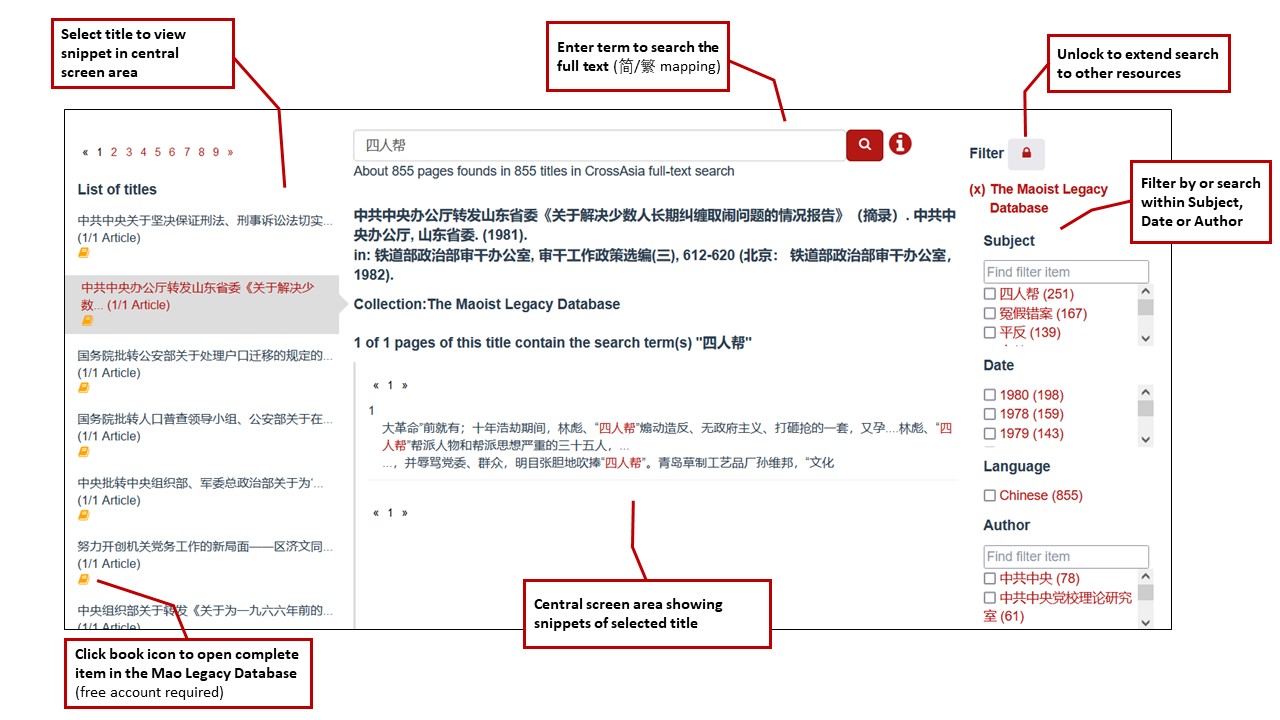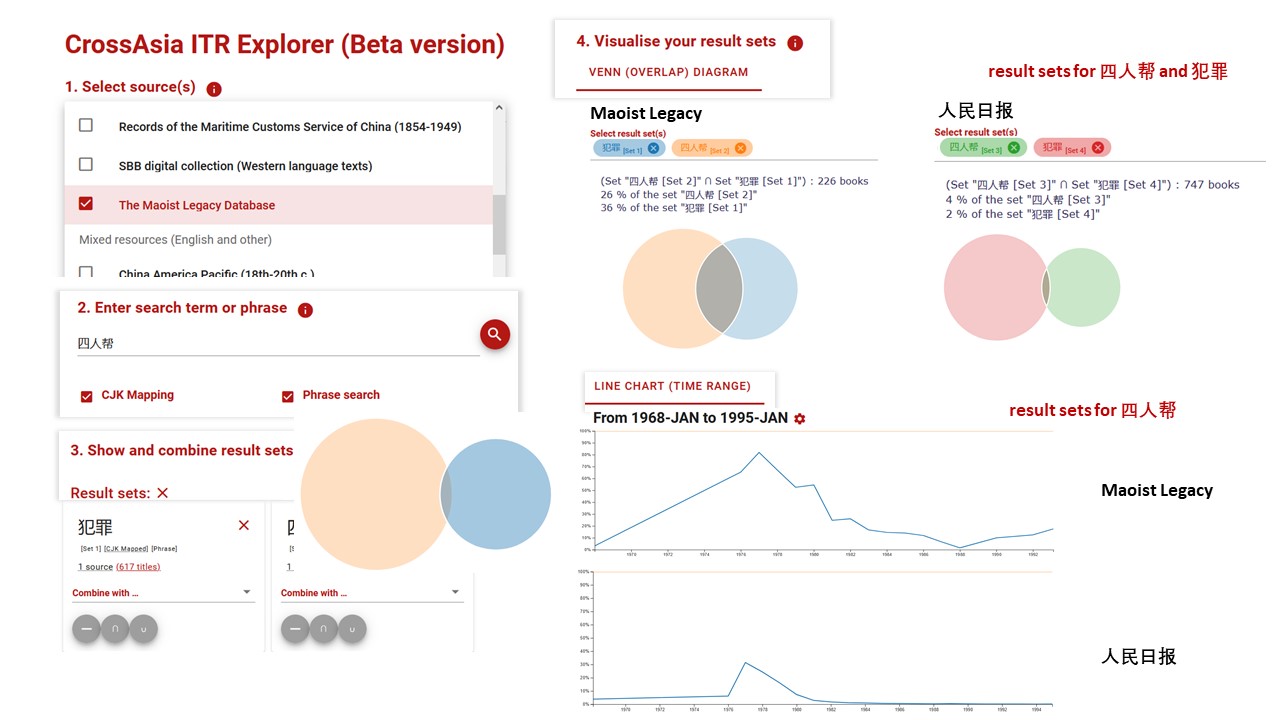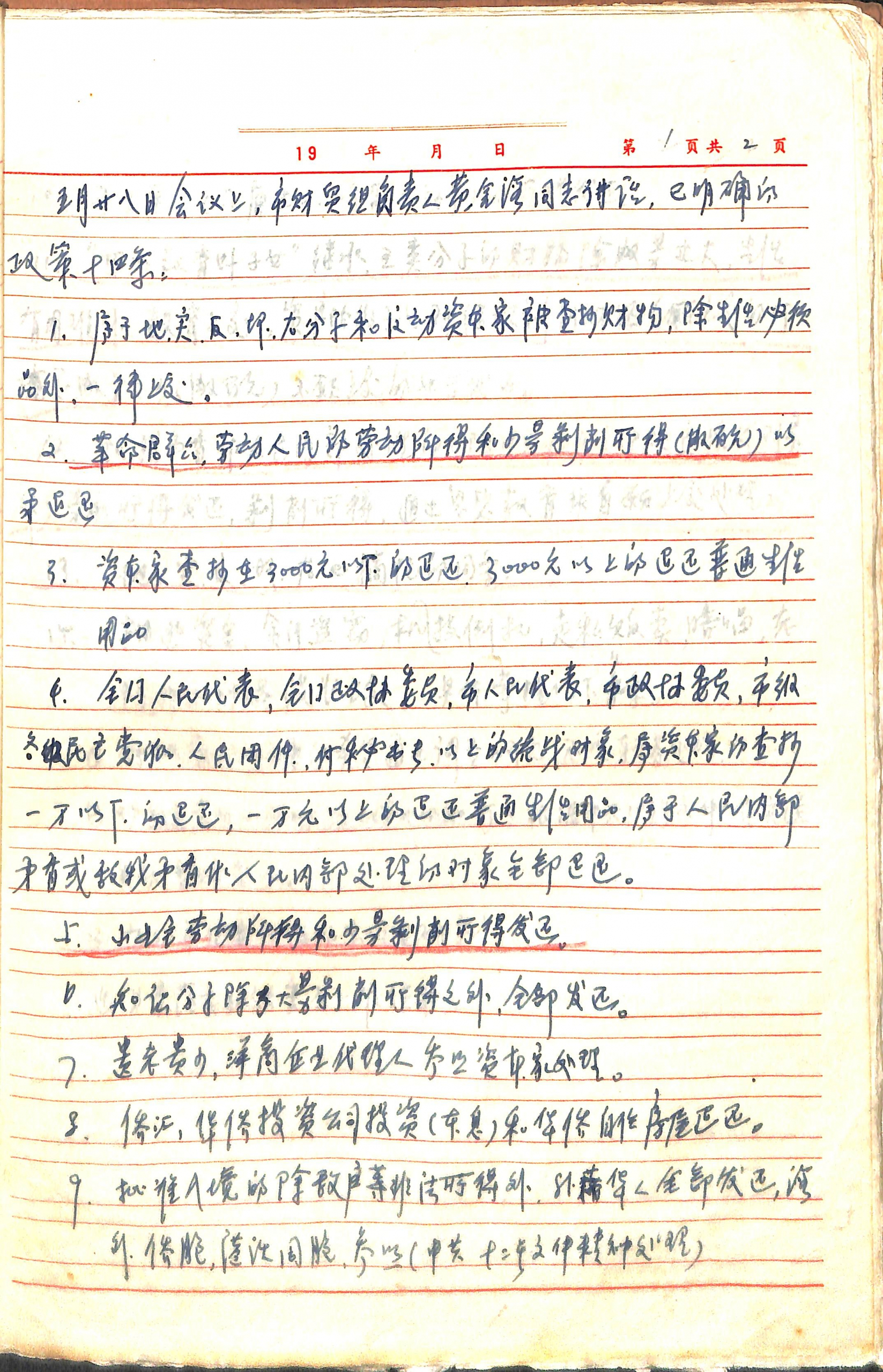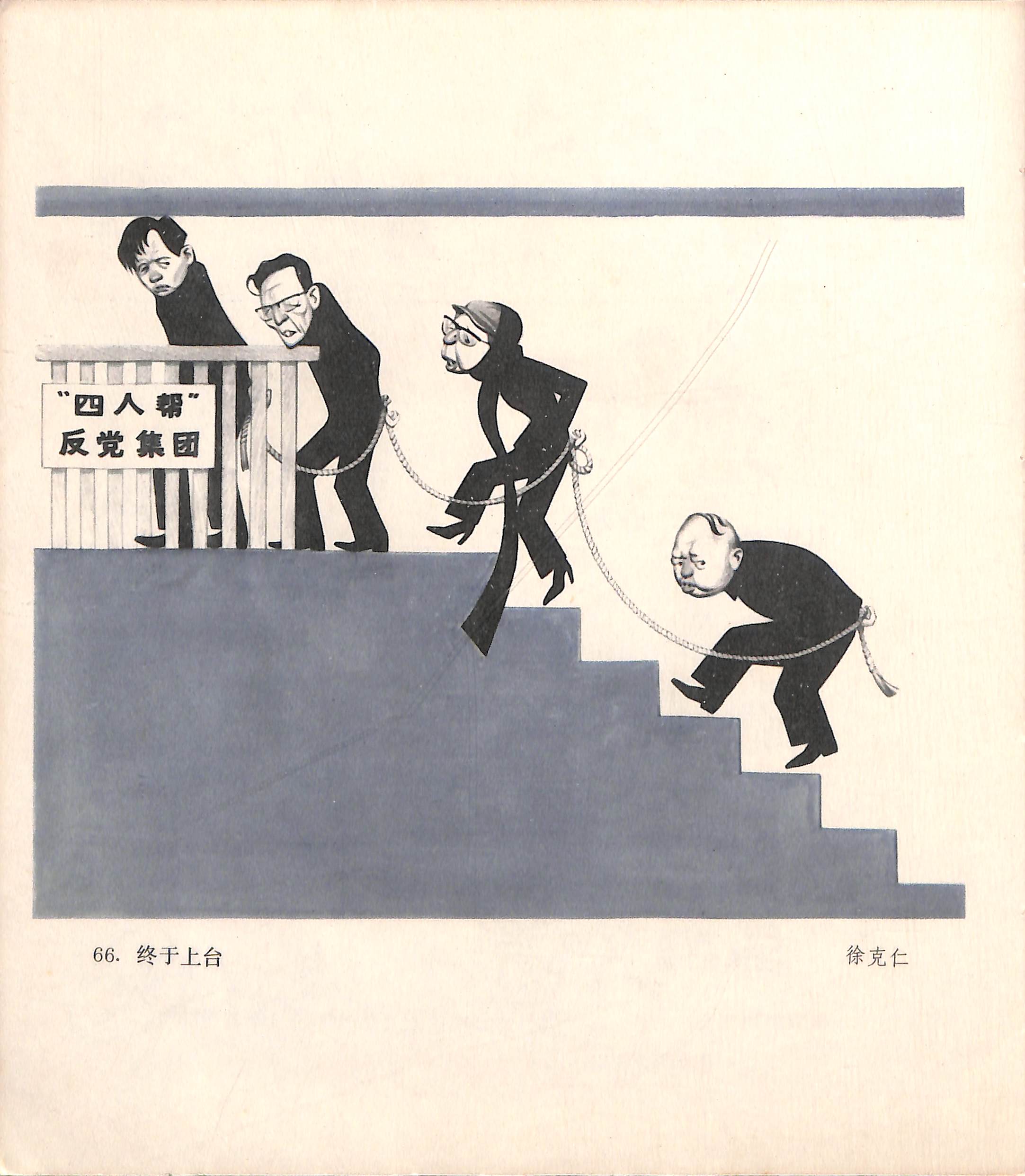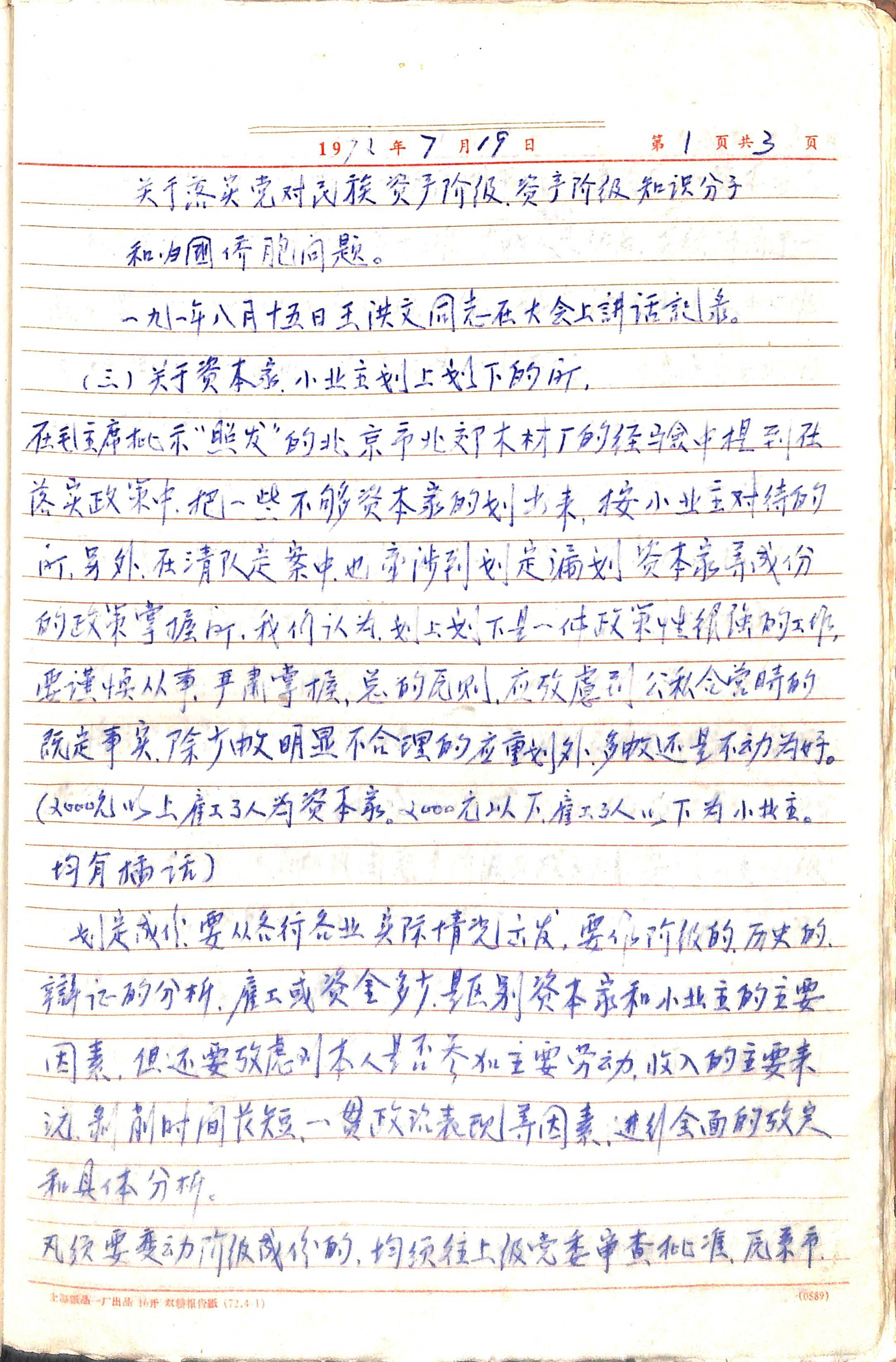The Maoist Legacy Collection
The largest digital collection of documents relating to the question of historical justice after the death of Mao Zedong
The Maoist Legacy Collection at the University of Freiburg holds several thousand original documents, handbooks, and personal dossiers from the 1950s until the 1980s. It ranks among the most comprehensive collections worldwide on the question of how a communist dictatorship has attempted to address injustices and atrocities committed in its own name. The main focus of the collection is devoted to the immediate post-Maoist period in the late 1970s and early 1980s, when dozens of millions of “unjust cases” were revised in the People’s Republic of China under the new leadership around Hua Guofeng, Deng Xiaoping and Hu Yaobang. The collection was assembled between 2005 and 2020 by Daniel Leese (University of Freiburg) and his research team, including Puck Engman, Thomas Kaiser, Amanda Shuman, Guoqing Song, Baigulahu Wang, and Man Zhang. The majority of documents was collected as part of the ERC-funded project “The Maoist Legacy: Party Dictatorship, Transitional Justice and the Politics of Truth” (2014-2019).
Today, over 5,000 documents of the collection have been annotated and digitized for further research. The digitization work is still ongoing (for most recent additions see the project website https://maoistlegacy.de). Updates to the digital holdings at Staatsbibliothek Berlin will be made on a yearly basis. Including the digital data sets of the Maoist Legacy Project into the CrossAsia Integrated Textrepository (ITR) allows for using innovative approaches from the digital humanities, but of course also qualitative research methods, to further explore the collections and its content. Due to privacy laws, currently the vast majority of individual case files cannot be made available in digitized format.
Note: To be able to call up the linked items in the text below, please get a free user account at Maoist Legacy project page.
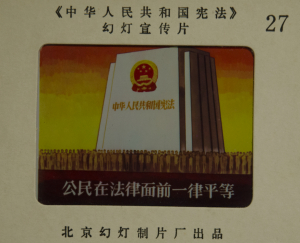
Diapositive propagandizing the content of the Chinese constitution “中华人民共和国宪法 幻灯宣传片,” The Maoist Legacy, https://www.maoistlegacy.de/db/items/show/5168
Full texts and metadata of the Maoist Legacy Collection are also searchable via CrossAsia Fulltext Search (this link opens with a pre-selection set to the Maoist Legacy Collection) and the ITR Explorer. The links provided in the hits lead to the original database page where you can open a free account and view the full document. See below for examples. The left-hand side of the image shows the steps to produce “result sets” which in the example search here serve to compare related content of the Maoist Legacy Collection (MLC) and People’s Daily (RMRB). The Venn diagram (upper right) shows that in MLC 26% of articles mentioning 四人帮 also the term 犯罪 appears whereas this is true only in 4% of the RMRB articles. The Line chart (lower right) for the time range 1968 to 1995 shows the same peak of appearance of the term 四人帮 for both resources in 1977, but a quicker decline of focus in the People’s Daily publication.
Selected Topics
Central Documents
In the communication from the apex of the Chinese Communist Party down to the lower ranks, the most authoritative documents are identified as 中发 zhongfa: “issued by the Center.” This designation signifies that at least one top leader, between 1953 and 1976 Mao Zedong personally, has personally reviewed and approved the document before handing it to the General Office, which prints and issues documents on behalf of the CCP Central Committee. Central Documents may have a particular unified format, but their content is not limited to a single type of texts. Some are reports from party organs (Item 877) or the army (Item 4785), others transmit texts from the PRC judicial system (Item 1064) or public security apparatus (Item 1051). In the end, the inclusion of a particular document in the zhongfa-series only means that it was designated as relevant and suitable for wider distribution by the highest possible authority. In this sense, Central Documents have always had a normative dimension. The compendiums of evidence against the Gang of Four (Item 1869; Item 2530; Item 2109) illustrate this point: proof of the Gang’s alleged crimes served not only to inform cadres of the official charges, but also as models to be used in the criticism of alleged co-conspirators in the provinces. From their historical function, the Central Documents derive an exceptional authority extending beyond any single institution. This helps explain why they remain to this day a major instrument in the exercise of the party’s sovereign power.
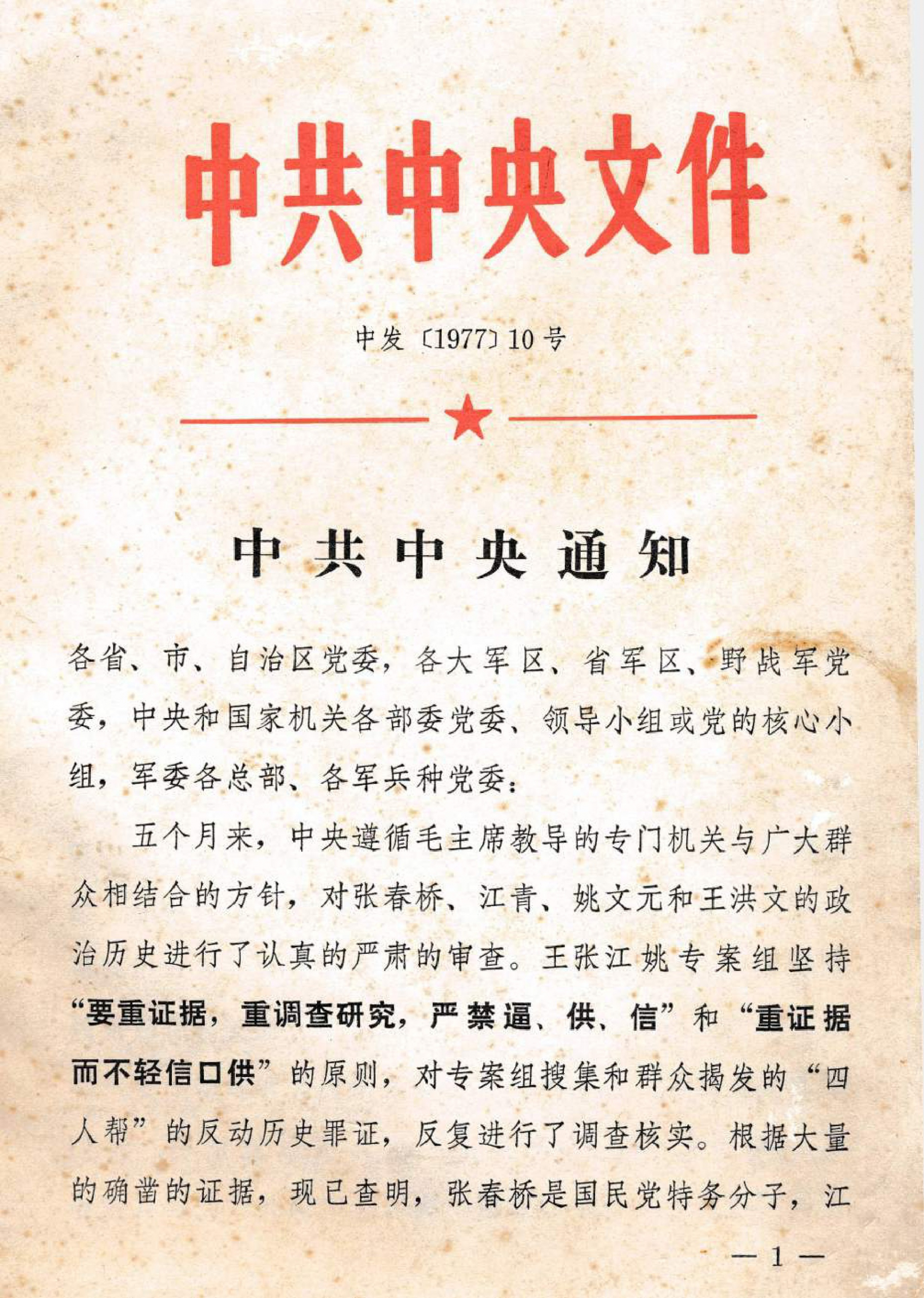
中共中央, “王洪文、张春桥、江青、姚文元反党集团罪证(材料之二),” The Maoist Legacy, https://www.maoistlegacy.de/db/items/show/2530
Compensation and Restitution
Few things are as central to the public memory of the Cultural Revolution as images of red guards gathering around burning piles of books or joining forces to demolish centuries-old temples. While the violence of the “four olds” movement has received warranted attention, the politics and logistics of the restorative program that followed in its wake have been largely ignored. The first central document on the return of possessions confiscated by red guards was issued in March 1967, less than a year after the house raids had begun (Item 2176). Thirty years later the political system had undergone a major transformation, but property questions lingering on from the Maoist past had yet to be conclusively answered (Item 2216). The qualitative and quantitative expansion of the engagement with past injustices in 1978 led to a parallel multiplication and diversification of compensation claims (Item 1491). Local authorities made efforts to complete the restitution of goods confiscated by red guards (Item 771). But even this restitution in kind was complicated by financial and technical issues, such as the question of how to account for inflation when returning cash (Item 1111). Another concern related to the rights of religious communities to their places of worship following years of displacement (Item 2437). With few exceptions, compensation and restitution only came into question in cases from the Cultural Revolution (Item 672; Item 1126). In contrast to the rulers of countries that abandoned communism altogether, Chinese leaders never questioned the legitimacy of a socialist economy that had itself been built on state appropriation of private property.
Political Trials and Historical Justice
In the wake of Mao Zedong’s death in September 1976, questions about the culpability of the remaining political leadership for the injustices and atrocities of the Cultural Revolution quickly came to the fore. On September 26, 1980, the CCP Center publicly announced the decision to try ten leading members of the “two cliques” (Item 399). A Special Procuratorate associated with the Supreme People’s Procuratorate (Item 1888) and a Special Court supervised by the Supreme People’s Court (Item 1972) were set up. To fulfill its pedagogical functions, enormous attention was paid to procedure and the staging of the trial. The final verdict went through twenty-six drafts, yet disagreement about the correct penalty continued (Item 1967). Less known are the trials against alleged followers of the two cliques that took place at lower levels. These trials differed from the Two Cases trial and varied from place to place. In Jiangsu (Item 2332; Item 2333) and Henan (Item 2304), several defendants were tried in late December 1979, several days before the Criminal Law and the Criminal Procedure Law were put into effect. The reason for rushing these trials was to avoid re-going through legal proceedings according to the new laws. In both cases, the accused were granted the right to appeal against their punishment. Yet none of them succeeded in having their verdicts changed (Item 2279; Item 2320; Item 2297).
United Front Work
The Chinese Communist Party’s normalization of diplomatic ties with the first world in the 1970s coincided with the restoration of the United Front. The United Front had its origins in the anti-imperialist strategy of the Comintern and the Chinese Communists’ uneasy alliances with the Guomindang in the early 1920s and during the Second World War. Instead of abandoning this arrangement after the founding of the People’s Republic of China, the party turned it into a core institution of socialist governance (Item 874). Early examples of how “policy fixing” contributed to the restoration of United Front work include the first directives on the restitution of belongings taken by Red Guards during house raids (Items 2177; 2179), which gave priority to United Front targets. The new United Front was to be patriotic first and foremost. Its primary mission was to build a foundation for Taiwan’s “return to the homeland” (Item 4928). Next to Taiwan, Tibet was considered the most important conflict pertaining to national unity. The Communist Party combined an external strategy of rapprochement with the Dalai Lama (Item 4943) with an internal policy of reconciliation and economic development (Item 4929). The United Front’s first objective, the promotion of national unity, was inextricably bound up with its mission to assist economic modernization and liberalization. New policies toward the Chinese diaspora (Items 875; 876; 877; 1021), for example, were designed to convince entrepreneurs in Hong Kong and Taiwan that they would enjoy special protection under the United Front and that any investments they made on the mainland would be safe (Item 4966). The reconfiguration of the United Front shows how the party went about defusing revolutionary politics in the years after Mao’s death. Instead of challenging the principles of Maoist politics, the new leadership declared past goals to have been met and addressed some of the most blatant wrongdoing.
Project bibliography
Printed Publications
(as of 01.2024)
Engman, Puck. “What Right to Property when Rebellion is Justified? Revolution and Restitution in Shanghai.” In Justice after Mao. The Politics of Justice in the People’s Republic of China, edited by Daniel Leese and Amanda Shuman, 45-72. Cambridge: Cambridge University Press, 2023.
———. Engman, Puck. “Breaking with the Past: Party Propaganda and State Crimes.” In Redefining “Propaganda” in Modern China: Movements, Policies, Producers, and Aesthetics, 1949-2012, edited by Matthew Johnson and James Farley, 183-204. Abingdon: Routledge, 2021.
———. Shanghai’s Dispossessed: The Capitalist Problem in Socialist Transition, 1956-1981, Ph.D. dissertation, University of Freiburg, 2020.
———. “Vetting the People’s Servant: On the Principles of Revolutionary Integrity.” In Victims, Perpetrators, and the Role of Law in Maoist China: A Case-Study Approach, edited by Daniel Leese and Puck Engman, 98-126. Munich/Boston: De Gruyter, 2018.
Leese, Daniel and Puck Engman. Victims, Perpetrators, and the Role of Law in Maoist China: A Case-Study Approach. Munich/Boston: De Gruyter, 2018.
———. “Politics and Law in the Early People’s Republic of China.” In Victims, Perpetrators, and the Role of Law in Maoist China: A Case-Study Approach, edited by Daniel Leese and Puck Engman, 1-24. Munich/Boston: De Gruyter, 2018.
Leese, Daniel and Amanda Shuman. Justice after Mao. The Politics of Justice in the People’s Republic of China, Cambridge: Cambridge University Press, 2023.
———. “Introduction.” In Justice after Mao. The Politics of Justice in the People’s Republic of China, edited by Daniel Leese and Amanda Shuman, 1-22. Cambridge: Cambridge University Press, 2023.
Leese, Daniel. “The Chinese Communist Party’s Politics of Historical Justice in Perspective.” In Justice after Mao. The Politics of Justice in the People’s Republic of China, edited by Daniel Leese and Amanda Shuman, 274-288. Cambridge: Cambridge University Press, 2023.
———. “Mao Zedong und Jiang Qing: Macht, Moral und Geschlechterrollen in der chinesischen Politik.” In Tyrannen. Eine Geschichte von Caligula bis Putin, edited by André Krischer and Barbara Stollberg-Rilinger, 195-209. Munich: C.H. Beck, 2022.
———. Maos langer Schatten. Chinas Umgang mit der Vergangenheit, Munich: C.H. Beck, 2020.
———. “Recht und Gerechtigkeit im Gefolge der Kulturrevolution.” In Das Strafrechtssystem der VR China. Historische Wurzeln und künftige Herausforderungen, edited by Daniel Leese and Michael Pawlik, 191-217. Baden-Baden: Nomos, 2019.
———. “Der Weg des Wiederaufstiegs: Geschichte Chinas seit 1949.” In Themenheft “China”, 6-12. Berlin: Bundeszentrale für politische Bildung, 2018
———. “Case Files as Source of Alternative Memories from the Maoist Past.” In Popular Memories from the Mao Era, edited by Sebastian Veg, 199-219. Hong Kong: Hong Kong University Press, 2019.
———. “Mao Zedong as a Historical Personality.” In The Cambridge History of Communism, Vol. 2: The Socialist Camp and World Power 1941-1960s, edited by Norman Naimark, Silvio Pons and Sophie Quinn-Judge, 269-290. Cambridge: Cambridge University Press, 2017.
———. Die Chinesische Kulturrevolution, 1966-1976. Munich: C.H. Beck, 2016.
———. “Kulturrevolution in China: Ursachen, Verlauf, Folgen.” Aus Politik und Zeitgeschichte 66 (2016): 1-12. (reprinted in Universitas 7 (2016): 76-94.)
———. “Between Socialist Futures: Mao Zedong on the ‘Ten Major Relationships’.” In Textual Moments in the History of Revolutionary Thought, edited by Rachel Hammersley, 159-166. London: Bloomsbury, 2015.
———. “‘Maoismus’: Anmerkungen zur Anwendbarkeit eines Konzepts auf die aktuelle chinesische Politik.” In Maoismus oder Sinomarxismus?, edited by Marcel Senn and Harro von Senger, 11-33. Stuttgart: Steiner, 2015.
———. “Revising Political Verdicts in Post-Mao China: The Case of Beijing’s Fengtai District.” In Maoism at the Grassroots: Everyday Life in China’s Era of High Socialism, edited by Jeremy Brown and Matthew D. Johnson, 102–128. Cambridge: Harvard University Press, 2015.
———. “Die Ära Mao Zedong und ihre Folgen für die Politik und die Gesellschaft Chinas.” Forum Politikunterricht 2 (2011): 6-9
Song Guoqing and Dong Guoqiang. “Guangxi Wenge qijian fei zhengchang siwang yanjiu” [Research on Unnatural Deaths in Guangxi during the Cultural Revolution].” Lingdaozhe 领导者 no. 68 (February 2016): 154-162.
Song Guoqing. “Dealing with Victims of the Cultural Revolution: the Case of Guangxi, 1983-1987.” In Justice after Mao. The Politics of Justice in the People’s Republic of China, edited by Daniel Leese and Amanda Shuman, 99-121. Cambridge: Cambridge University Press, 2023.
———. Healing the Wounds? Redressing State Crimes in Guangxi after the Cultural Revolution. Ph.D. dissertation, University of Freiburg, 2020.
———. “The Floating Fate of a Rebel Leader in Guangxi, 1966-1984.” In Victims, Perpetrators, and the Role of Law in Maoist China: A Case-Study Approach, edited by Daniel Leese and Puck Engman, 174-199. Munich/Boston: De Gruyter, 2018.
———. “Chidao de zhengyi: Guangxi chuli wenge luan dasi ren wenti de qidong [Justice that Came Too Late: How Guangxi Began to Deal with the Problem of Random Killings in the Cultural Revolution].” In Wenge wushi nian: Mao Zedong yichan he dangdai zhongguo [China and the Maoist Legacy, Vol. 2: The 50th Anniversary of the Cultural Revolution], edited by Song Yongyi, 81-102. Los Angeles: Mirror Books, 2016.
Zhang, Man. “Narratives and Voices of Cultural Revolution ‘Perpetrators’.” In Justice after Mao. The Politics of Justice in the People’s Republic of China, edited by Daniel Leese and Amanda Shuman, 193-215. Cambridge: Cambridge University Press, 2023.
———. “Ending Political Violence: Making and Unmaking Perpetrators of the Cultural Revolution in Post-Mao China”. Ph.D. dissertation, University of Freiburg, 2021.
———. “From Denial to Apology: Narrative Strategies of a ‘Perpetrator’ after the Cultural Revolution.” In Victims, Perpetrators, and the Role of Law in Maoist China: A Case-Study Approach, edited by Daniel Leese and Puck Engman, 150-173. Munich/Boston: De Gruyter, 2018.
Interviews and Recorded Discussions
“Die Massen aufgerufen, die Partei zu kritisieren.” Daniel Leese interviewed by Verena Klein and Felicia Lee Nölle for L.I.S.A., June 8, 2017. https://lisa.gerda-henkel-stiftung.de/die_massen_aufgerufen_die_partei_zu_kritisieren?nav_id=6984.
“The Legacy of the Cultural Revolution.” Daniel Leese interviewed by Ruth Kirchner for MERICS Experts, May 13, 2016. https://www.merics.org/en/podcast/daniel-leese-legacy-cultural-revolution.
“Das Echo des Diktators.” Video interview with Daniel Leese about the Maoist Legacy Project for Surprising Science, April 13, 2016. https://youtu.be/rBxVUXFRj0U.
“The Cultural Revolution at 50: A Q&A with Four Specialists.” Daniel Leese interviewed by Alexander C. Cook for Blog // Los Angeles Review of Books, February 24, 2016, and March 2, 2016. http://blog.lareviewofbooks.org/chinablog/cultural-revolution-50-qa-four-specialists-part-one/ and http://blog.lareviewofbooks.org/chinablog/cultural-revolution-50-qa-four-specialists-part-two/.
“How Did China Juridically Deal with Atrocities Committed During the Cultural Revolution?” Daniel Leese summarizes the key findings of his chapter in Maoism at the Grassroots for Latest Thinking, 2015. https://lt.org/publication/how-did-china-juridically-deal-atrocities-committed-during-cultural-revolution.
For a full bibliography of also all primary resources used and referenced in the Maoist Legacy Collection see https://www.maoistlegacy.de/db/references
Dieses Themenportal zeigt die Ergebnisse der Projekte „Zwischen Revolution und Reform. Übergangsjustiz und Herrschaftslegitimation in der VR China“ (2011-2015) an der Bayerischen Akademie der Wissenschaften und der Universität Freiburg sowie „The Maoist Legacy: Party Dictatorship, Transitional Justice and the Politics of Truth” (2014-2019, ERC-Grant number: 336202) an der Universität Freiburg.
Drittmittelgeber des Projekts waren die Bayerische Akademie der Wissensschaften sowie der European Research Council (ERC).
Mehr Informationen zum Projekt finden Sie hier.


![]()
